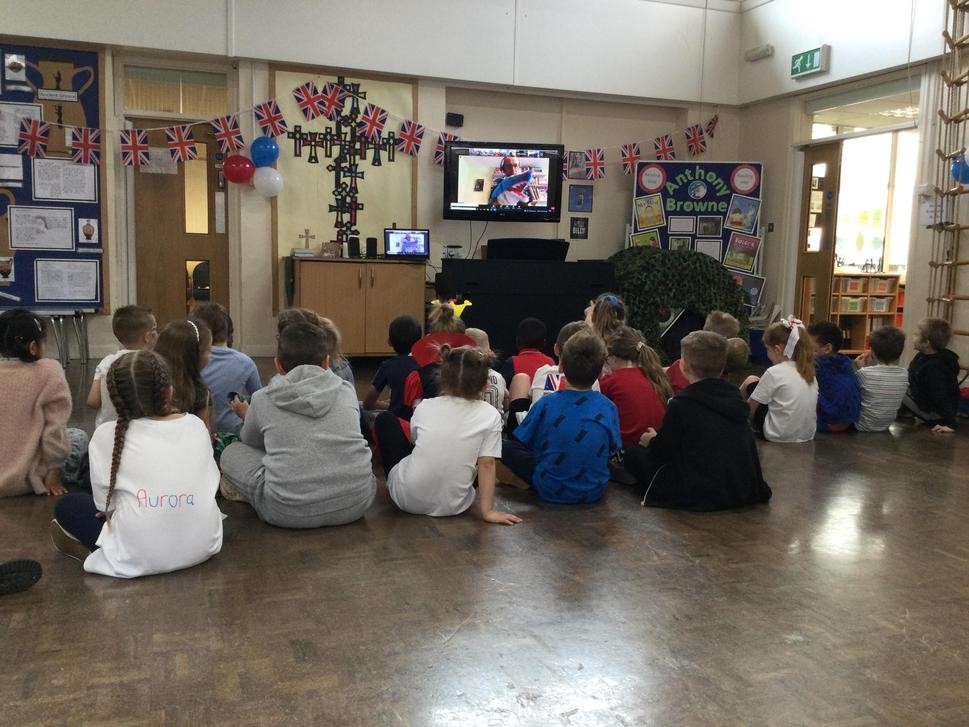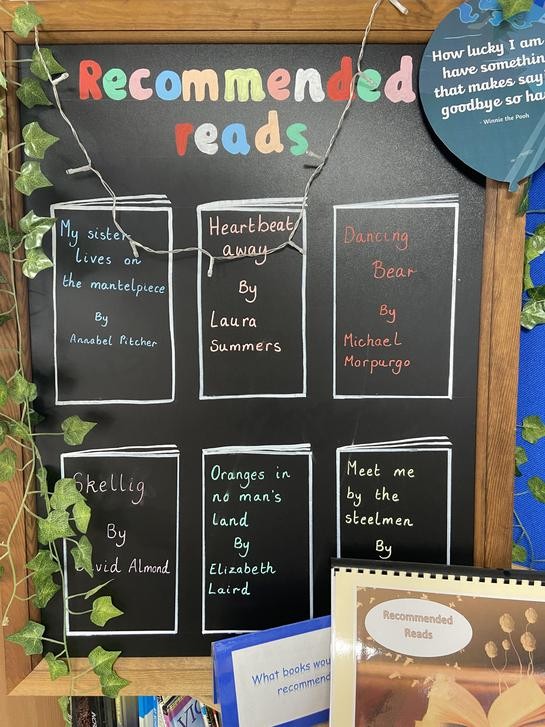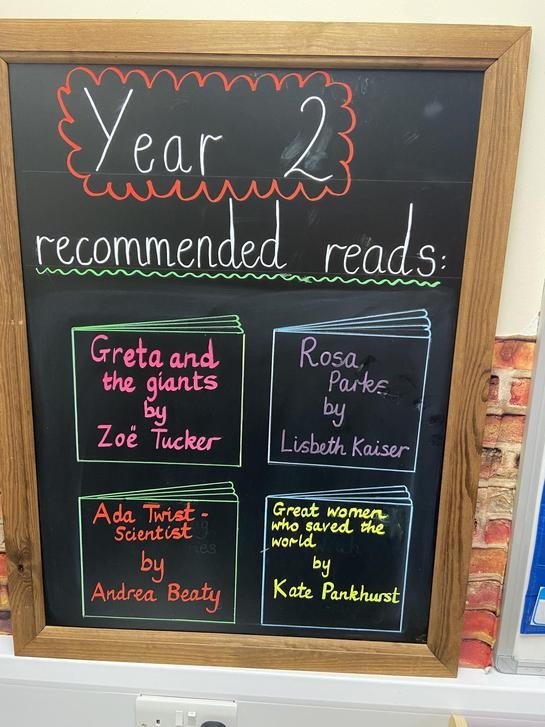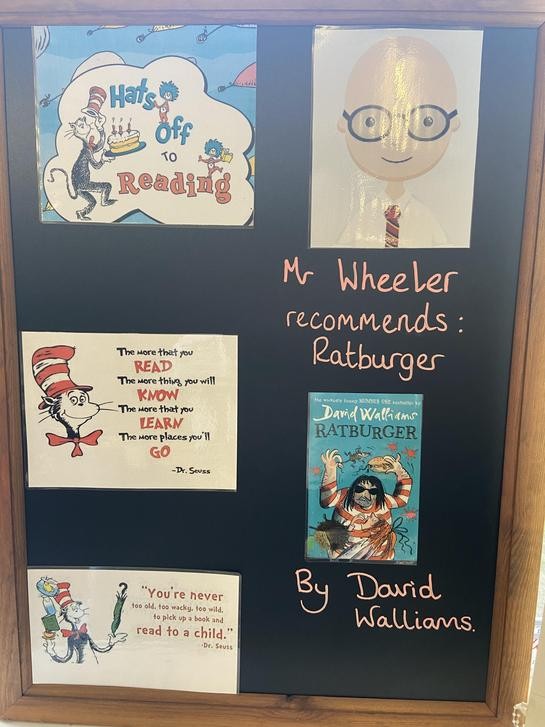Reading and Phonics
Reading
At Fullerton we are passionate about reading and place it at the heart of our curriculum. We know that once children have learned how to read, that they will be able to 'read to learn'. It is essential for us to develop children's phonic skills as early readers and to move to developing comprehension skills when they are ready. We understand the importance of developing a love of reading and books right from our nursery.
The priority of reading
Along with the English subject leader and the early reading leader, the school leadership prioritises reading. Regular meetings are held with the early reading lead to discuss priorities in training, analyse data and look for ways forward. Visits to phonics lessons occur regularly ensuring consistency across the school. There are opportunities for coaching from the Early reading leader who is in turn supported in their own professional development by development days and termly meetings with a RWI national trainer.
Love of reading
A love of reading is promoted across the whole school. This begins in nursery where children take home picture books to share with their adults and throughout the day there are several reading sessions where the adults in the class talk about books and read stories to the children. Throughout the rest of the school we use the Pie Corbett reading spine for essential reads for each class and there is a daily story time for all year groups. Reading corners have been developed in each classroom where books are celebrated and children are encourage to leave recommendations about books they have read. Each year groups also has sets of books which the children are encouraged to read and talk about with each other. The class staff have read these books and dialogue about the books is encouraged. There is a list of books for each year group below which links to books appropriate to topics covered in class, guided reads and whole class reads.
There is an expectation that all children will read at home at least 3 times per week, to help them to improve their vocabulary, fluency and excitement around reading. Children receive badges in celebration assembly when they have achieved specific milestones for reading at home. Bronze = 50 reads, Silver = 100 read, Gold = 150 reads and Platinum = 250 reads.
School Curriculum Booklist
Early Reading and Phonics
At Fullerton all staff have been trained to deliver the Read Write Inc phonics programme.
The programme has a strong focus on allowing our children to know more and remember more. Children are taught phonics daily, in small streamed groups, from reception until they have completed the phonics programme. Small groups ensure that all children are taught at an appropriate level, resulting in good progress being made. The model of RWI dovetails beautifully with our DSAT model for teaching and learning
Revisit/review - Previously taught sounds and words are continuously reviewed both at the beginning and throughout the phonics session.
Teach simply - Children are taught a new sound a day (for 3 days), following the same sequence
Practice thoroughly - Children have the opportunity to practice the sound in words, including multi-syallabic and non-words.
Apply - Children apply reading their new sounds in closely matched phonically decodeable books. Children are also given the chance to practice and apply their sounds at home as they are sent a book bag book (a book from their colour RWI group linked to the sound taught) and a paper copy of the book that they have read in the session.
Assess - All teachers assess throughout the lesson to check children's understanding. Children are regularly assessed (approximately every 6 weeks or sooner) by a member of staff. 'Spotlight' children (who may not be making as much progress as expected) are targeted by the teacher to ensure they don't get left behind.
RWI is a keep up, not a catch up programme. If children are identified as falling behind, plans are immediately put in place to support that child.
Below is a grid which shows what we expect them to know by the end of reception, Year 1 and Year 2.
Read Write Inc Teaching Progression
Pupils who fall behind catch up quickly
There are regular discussions between staff about phonics and the early reading leader quickly identifies children who are falling behind. Children are assessed approximately every 6 weeks, although this can be sooner. The early reading leader puts together a five layers of provision for the children where needed.
- The daily phonics session is taught robustly
- The child has 1:1 or small group phonics tutoring in the afternoon
- Virtual classroom links (additional phonics lessons) are sent home to parents for extra practice
- Children are given time to watch the phonics videos in school.
- Teachers lead an extra phonics session in an afternoon using the virtual classroom
Phonics from the beginning of reception
Phonics is taught from the very beginning of FS2. If the children are ready, some of the sounds may be taught from the Summer term of FS1. We believe that a strong start in reception has a big impact on children's progress and confidence in reading.
Phonically Decodeable Books
From our nursery (FS1) , library books are sent home with the children. Their focus is on language acquisition and developing that love of reading by listening to stories being read to them. As children begin RWI in FS2 they are sent home with sound cards to practice their sounds. Following this, children are sent home a sound blending book. When the children move into the ditty group, they will take home a perfectly matched phonically decodeable book (book bag book) home with them. They will also take home a paper copy of the book that they are reading in the phonics session. As well as these, the children also pick their own read for pleasure book to encourage their parents to read to the children to support them to develop their vocabulary. Books are changed weekly so that children have the chance to practise their phonics sounds and to build fluency.
Early Reading Experts
All staff in school have been trained in RWI phonics. The early reading leader attends half termly training sessions and analysis of school data which is relayed to school staff. All staff have access to the 'virtual classroom' where there are a large number of training videos for every aspect of phonics. The early reading leader observes lessons and identifies pathways for training and coaching where needed. We have an annual RWI development day where a RWI trainer visits lessons and offers bespoke training.
Beyond RWI
When children have moved off the RWI programme, they are benchmarked on the school colour banding system, starting at turquoise and they will begin more formal comprehension lessons.
Comprehension is taught using a mixture of cracking comprehension, headstart, literacy shed and through guided reading and the content domains from the national curriculum are covered.
In English, units of lessons are organised around motivating books and texts and children move from reading into writing.
Reading fluency is an essential skill and interventions are put in place to ensure that children read with pace, expression and intonation.
Teachers make book recommendations for their class based on books they have really enjoyed reading.
Book recommendations
Key Stage one were lucky enough to have a virtual visit off of author Neal Zetter. The children got to ask some questions as well as listening to what he had to say.





